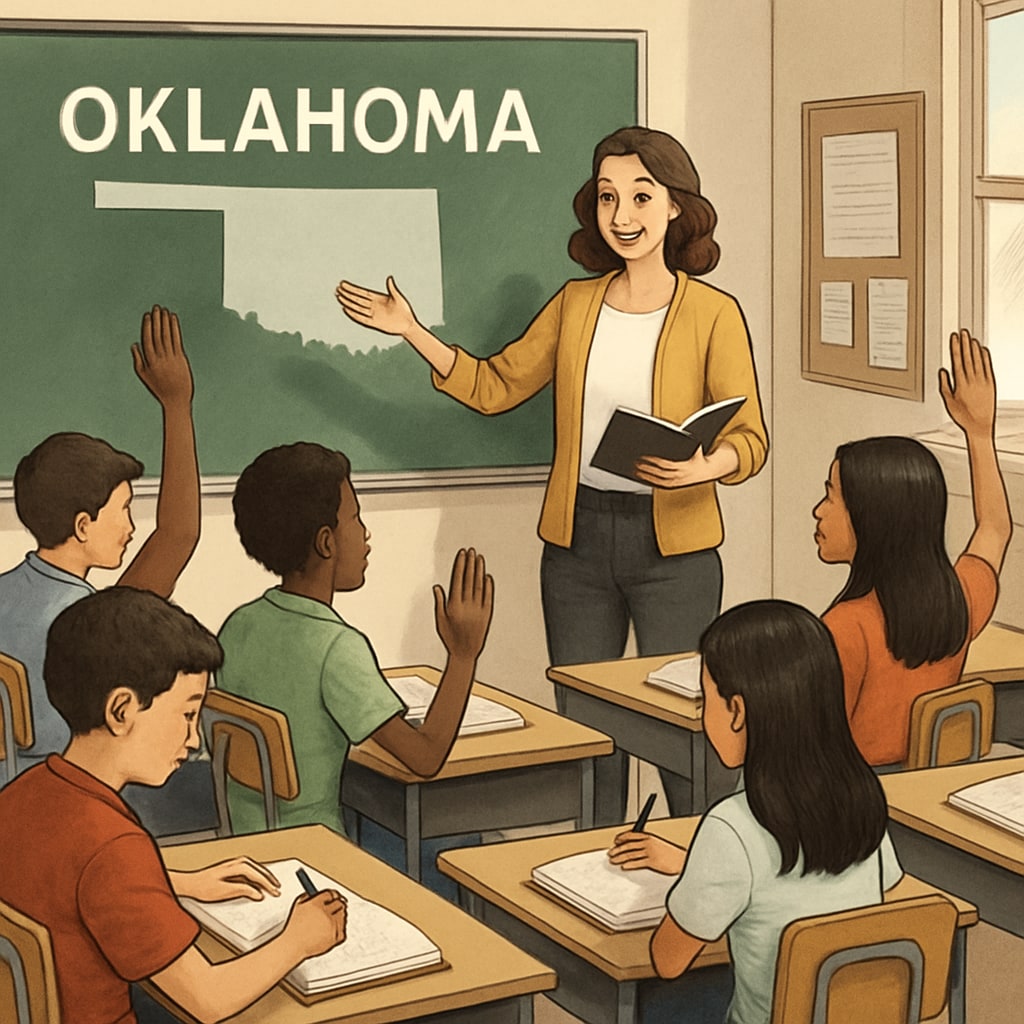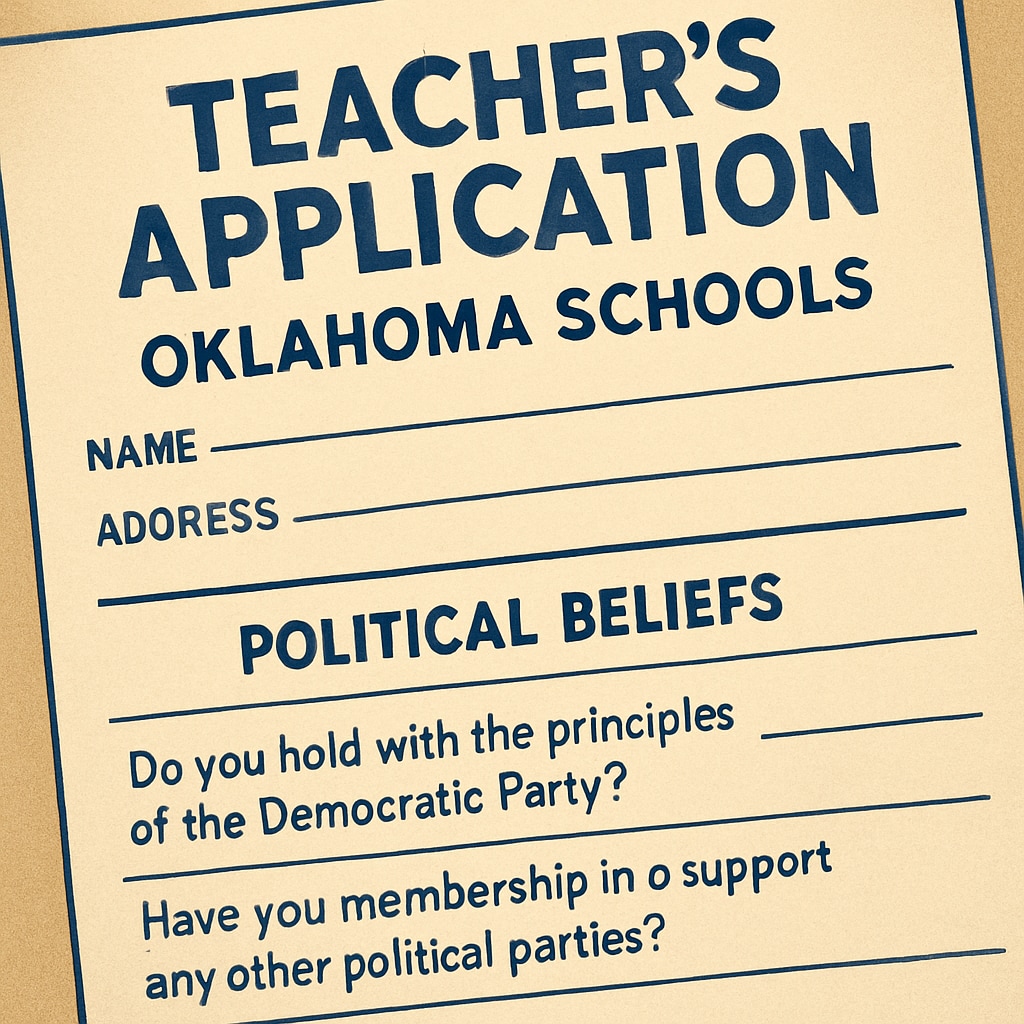Oklahoma’s recent introduction of a political affiliation test for out-of-state teacher applicants has ignited heated debates over its implications for neutrality in education and the potential for ideological interference. This controversial policy, aimed at screening educators based on their political leanings, raises essential questions about the intersection of personal beliefs and professional qualifications. While proponents argue that it ensures alignment with state values, critics warn that it may deter qualified professionals and compromise the integrity of education.

Understanding Oklahoma’s Political Affiliation Test
The policy in question requires teachers from other states to answer questions related to their political beliefs and affiliations as part of the application process. This move is reportedly intended to assess whether incoming educators align with the state’s cultural and ideological values. While details of the test remain unclear, the premise has drawn widespread attention from educational organizations and advocacy groups.
Proponents of the policy argue that it is necessary to maintain a cohesive educational environment where teachers and curricula reflect community standards. By screening for political ideology, they claim, schools can avoid potential conflicts and ensure that educators reinforce the values held by the majority of the population. However, this approach has sparked concerns about discrimination and the exclusion of diverse perspectives.

Potential Impacts on Teacher Recruitment
One of the most significant concerns surrounding this policy is its impact on teacher recruitment. Oklahoma, like many states, faces challenges in attracting qualified educators to fill its classrooms. Introducing political affiliation tests may further complicate these efforts by discouraging applicants who fear unfair judgment based on their personal beliefs.
- Reduced teacher diversity: Screening for political ideology could lead to a homogenized workforce, limiting exposure to diverse perspectives for students.
- Legal challenges: Critics argue that the policy may violate anti-discrimination laws or constitutional rights, potentially leading to expensive legal battles.
- Negative public perception: This policy could tarnish Oklahoma’s reputation as a welcoming state for educators, driving applicants to seek opportunities elsewhere.
As a result, the state risks exacerbating existing shortages while inadvertently signaling that ideological alignment outweighs professional qualifications in hiring decisions.
Balancing Ideologies and Professionalism in Education
The introduction of this policy raises broader questions about the role of politics in education. Should teachers be selected based on their ability to impart knowledge effectively, or should their personal beliefs also factor into hiring decisions? Striking the right balance between ideological alignment and professional competency is crucial to maintaining the integrity of the educational system.
To address these concerns, experts suggest the following approaches:
- Focus on qualifications: Prioritize proven teaching skills, certifications, and experience over personal beliefs.
- Encourage diversity: Promote an inclusive environment where educators from various backgrounds can contribute to students’ growth.
- Transparency in policies: Provide clear guidelines and rationale for any screening mechanisms to avoid misinterpretation or backlash.
While it is reasonable for states to seek alignment between teachers and community values, overemphasis on political ideology risks undermining the core mission of education: fostering an environment of learning, critical thinking, and mutual respect.
Conclusion: Navigating the Path Forward
Oklahoma’s political affiliation test for out-of-state teacher applicants highlights a growing tension between maintaining ideological alignment and ensuring educational excellence. As debates continue, policymakers must weigh the potential benefits of such a screening mechanism against its broader consequences for teacher diversity, recruitment, and public trust.
Ultimately, the goal should be to create an education system that respects community values while embracing the diversity and professionalism necessary to prepare students for an increasingly complex world.
Readability guidance: This article uses short paragraphs, clear transitions, and lists to enhance readability. Passive voice is minimized, and key ideas are presented in accessible language for a wide audience.


